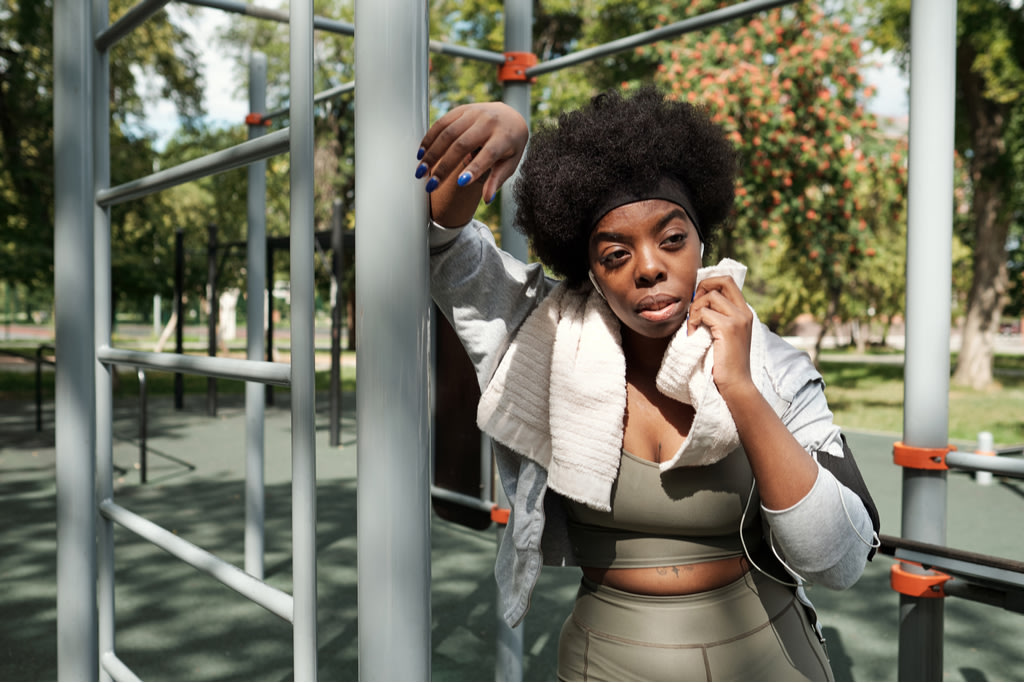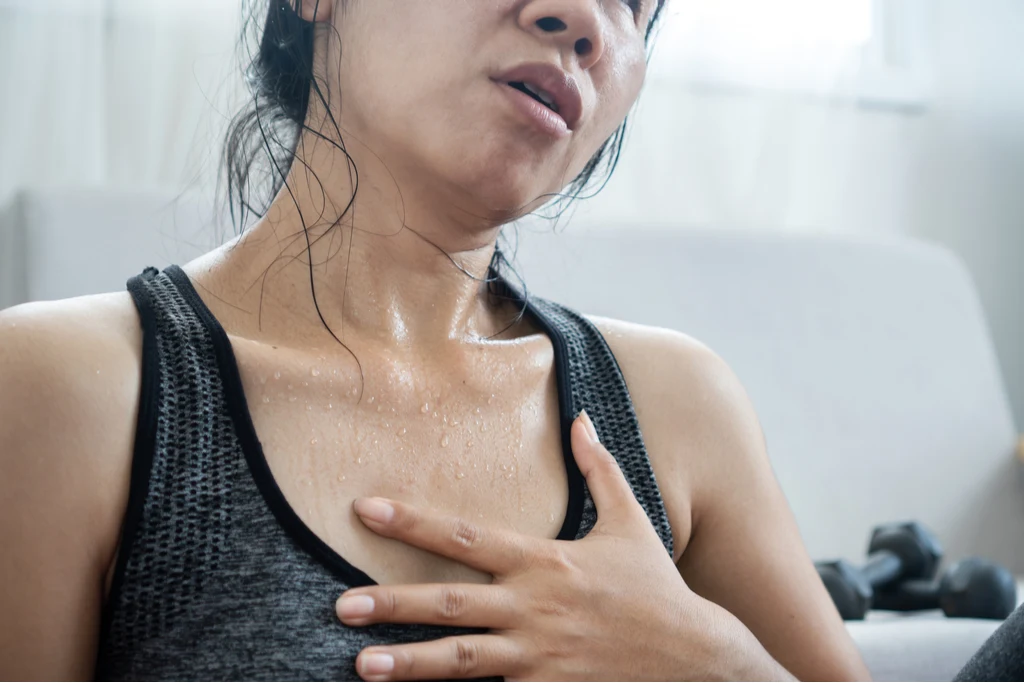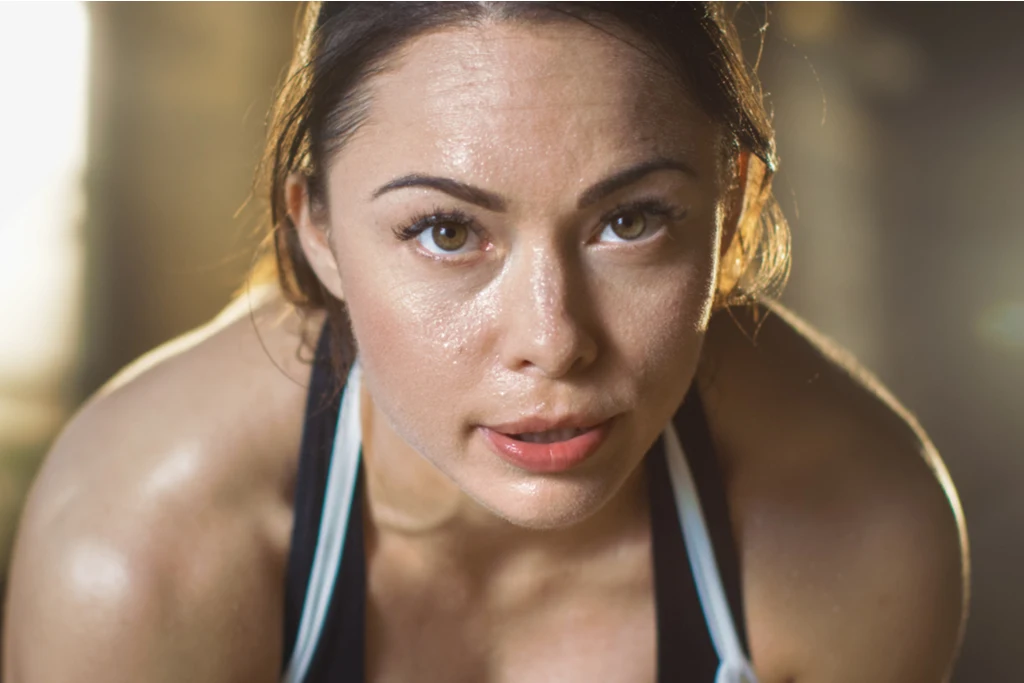How To Sweat Less: 9 Tips For Reducing Sweat & Body Odour

June 21, 2022 - Updated June 21, 2022

Sweating is a natural bodily process that helps your body regulate its temperature and keep cool, but knowing sweat is completely normal doesn’t necessarily make it any easier to manage or feel confident about!
Sweat marks, funky smells and feeling damp make many people feel self-conscious or anxious, so we’ve put together some top tips to help you stay dry for longer.
Deodorant vs antiperspirant
It’s common to think of deodorant and antiperspirant as the same thing, but there is a difference and it can completely change your sweat game!
Deodorant does exactly what it says - it works to reduce odour, but it won’t necessarily impact how much you sweat. Antiperspirant on the other hand works to prevent perspiration. Check the label and look for an antiperspirant if you’re looking for a reduction in sweat.
Are antiperspirants just for your underarms? Nope! You can also use them on other sweat-prone areas of your body such as your hands and feet.

Time your application
When in your workout schedule you apply your antiperspirant can also make a difference! It takes time to absorb and block your sweat ducts, so it’s actually best to apply it at night after you have a shower and before you go to bed when you’re not sweating as much.
If you apply it as part of your morning routine or just before you exercise, it may not have time to absorb, or it might come off as soon as you start to sweat.
To stay dry all day, you can also reapply around midday - especially if you tend to sweat a lot during the day or have a workout planned for later on (or fun evening plans!). Carrying wet wipes can be another good way to freshen up if a shower’s not on the cards.
The next level up
If over the counter antiperspirants don’t do the trick, trying a clinical-grade product is an option. Some of these can be purchased over the counter from the supermarket or chemist, but some higher strength products require a prescription from your doctor.
Your doctor can also assess if you have a sweat condition called hyperhidrosis, which affects around 5% of the US population according to 2016 research. Your doctor will be able to advise if you are suitable for other forms of treatment such as botox in those sweat-prone areas.
Be smart with your fabrics
If you find you sweat heavily, it pays to check clothing labels and opt for natural fibres or fabrics with sweat-wicking properties when you’re looking for new clothes. Natural fibres like cotton are much more breathable, and linen allows even more airflow due to its looser weave. Packing a spare shirt can be a good backup option, too!
When working out, sweat-wicking fabrics work to draw the sweat away from your body to keep you cool and dry.
If you’re living in a warmer climate or sunny location, lighter colours will absorb less heat to keep you cooler. Picking natural fibres for your bedding can also work wonders if you sweat a lot during your sleep!

Keep bacteria to a minimum
Although this won’t change the amount you sweat, using an antibacterial soap when you shower or bathe can help remove the bacteria on your body that causes those funky sweat smells! It can also keep your skin clean for when you want to apply your antiperspirant or deodorant.
Removing the hair from your underarms can also help increase the absorption of your antiperspirant and reduce odour-causing bacteria that can get trapped in the hair. What you do with your body hair is totally up to you, so if you prefer to keep your underarm hair, make sure you wash thoroughly each day.
Experiment with your diet
We all know what it’s like to eat a spicy meal and suddenly break out in a sweat, and chilli isn’t the only food that can leave you feeling sweaty!
Hot drinks, spicy food and alcohol can all increase your body temperature and make you sweat more, while caffeine can stimulate your adrenals and sweat glands too.
Wanting to smell a bit fresher? Cutting down on your consumption of onions, garlic and spices might make a difference. Try keeping a diary of moments your sweat or odour increases, what you have had to eat or drink, what you are wearing, and any emotions you’re feeling to see if there are any patterns!
Stay hydrated
Putting MORE water into your body might seem counterintuitive when it comes to reducing moisture, but staying hydrated is essential for keeping your body cool, as well as many other bodily functions.

Gym etiquette
Getting sweaty goes hand in hand with a tough workout for many of us and working up a good sweat can be SO satisfying, right? Let’s be honest though, no one likes being on the receiving end of sweat spray or going to use a piece of equipment only to find it’s damp!
Always bring a sweat towel with you to dry off during your workout, and consider taking two if you get particularly sweaty - keep one for your face and body and use the other to wipe equipment or lay over surfaces you touch such as the benches or seats on weight machines. That way you’re not spreading bacteria between the equipment and your face.
The power of relaxation
Find your hands get clammy when you’re nervous, or those sweat patches seem to pop up when you’re feeling anxious? Emotional sweat is DEFINITELY a thing, and learning mindfulness techniques such as meditation, slow breathing or relaxing muscle tension in your body can help to calm your nervous system and put your body in a more relaxed (and less sweaty) state.
Do you sweat heavily and have any tips and tricks that work for you? Do share them in the comments!

A more empowered you starts with Sweat, and our editorial team is here to bring you the latest fitness tips, trainer recommendations, wellbeing news, nutritional advice, nourishing recipes and free workouts.
* Disclaimer: This blog post is not intended to replace the advice of a medical professional. The above information should not be used to diagnose, treat, or prevent any disease or medical condition. Please consult your doctor before making any changes to your diet, sleep methods, daily activity, or fitness routine. Sweat assumes no responsibility for any personal injury or damage sustained by any recommendations, opinions, or advice given in this article.
Wellbeing